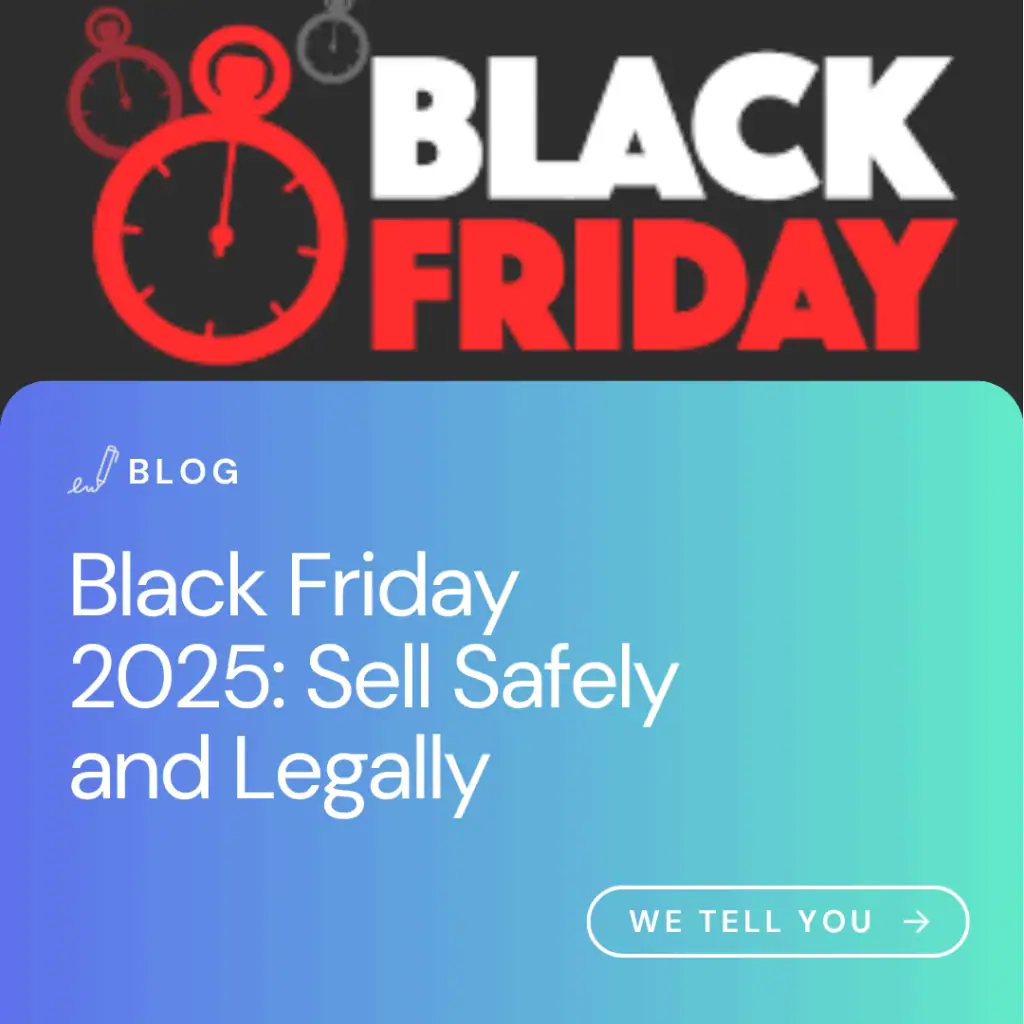

While everyone else focuses on slashing prices, protect what truly drives your growth: the ability to run marketing campaigns, measure results, and sell , without legal obstacles.
For e-commerce and digital marketing professionals, the real action (and opportunity) happens online. Here’s a friendly reminder: keep your Black Friday campaigns compliant.
As digital privacy experts, we’ve prepared a practical checklist to help you make this Black Friday both profitable and safe.

We all get carried away by sales forecasts, paid media, and Black Friday email campaigns — we get it.
But you shouldn’t overlook online legal compliance, because the consequences can be costly:
Campaign performance drops:
If you don’t have Google Consent Mode configured, your ads or remarketing may be restricted mid-campaign. This means less accurate data, weaker optimization, and fewer sales.
Loss of trust and inclusion:
Unclear consent processes or confusing discount policies can frustrate your customers. In addition, a lack of accessibility excludes users — and reduces your sales.
Regulatory risk:
Failing to display notices about tracking, legal bases, or data protection can lead to complaints and fines right when your traffic peaks.
Operational issues:
Weak or incomplete Terms & Conditions can lead to disputes, returns, unauthorized charges, or confusion about warranties and deliveries.
If you use cookies for analytics, social media, or remarketing and have visitors from the EU, you must collect granular and valid consent, block non-essential cookies until permission is granted, and keep proof of that consent.
Your performance during Black Friday depends on it.
If Google Consent Mode isn’t enabled, remarketing, segmentation, and conversion tracking are all affected — and so is your revenue.
It also models conversion data even from users who didn’t provide consent, improving your insights and future optimization.
Terms & Conditions set the legal rules for using your product or service, limit liability, and include key information about consumer rights — essential in e-commerce.
They’re a must if you sell online, process payments, manage different user types, affiliate programs, or account rules.
In short, customized Terms protect you from unjustified claims and set clear expectations around shipping, returns, warranties, or subscriptions.
Your policy should reflect reality — the services you use, purposes, legal bases, data retention periods, and users’ rights — and be kept up to date in all the languages you operate in.
Almost every website and app needs one: social login, payment gateways, analytics, shopping carts, and more.
Otherwise, you risk fines, loss of credibility, or even invalidating your email database.
Your legal texts should always be tailored to your business and updated regularly.
Starting in June 2025, the European Accessibility Act (EAA) will require websites to be accessible for companies with more than 10 employees or over €2M in annual revenue.
Accessibility ensures digital products can be used without discrimination — whether visual, auditory, motor, cognitive, or temporary.
Accessibility is a double opportunity: inclusion and business.
And yet, 97% of websites are still not accessible. Don’t leave anyone out this Black Friday 2025..
Consent Management Platform (CMP)
Set up, customize, and automate your cookie banner in minutes.
💡Compatible with Google Consent Mode, Meta Consent Mode, and Microsoft UET.
This way, you ensure full compliance without losing key data from your campaigns.
Automatic Legal Text Generator
Create your Privacy Policy, Cookies Policy, and Terms & Conditions in seconds — fully tailored to your business and country.
No generic templates or complicated legal language: our texts update automatically whenever regulations change.
📍Easily install them on your website (footer, checkout, or any data collection point).
🌍 Available in multiple languages.
Web Accessibility Solution
Comply with the new European Accessibility Act (EAA) and enhance the experience for all your users.